Quesada gigas from Brazil, Photo by Leonardo Milhomem. 2005.
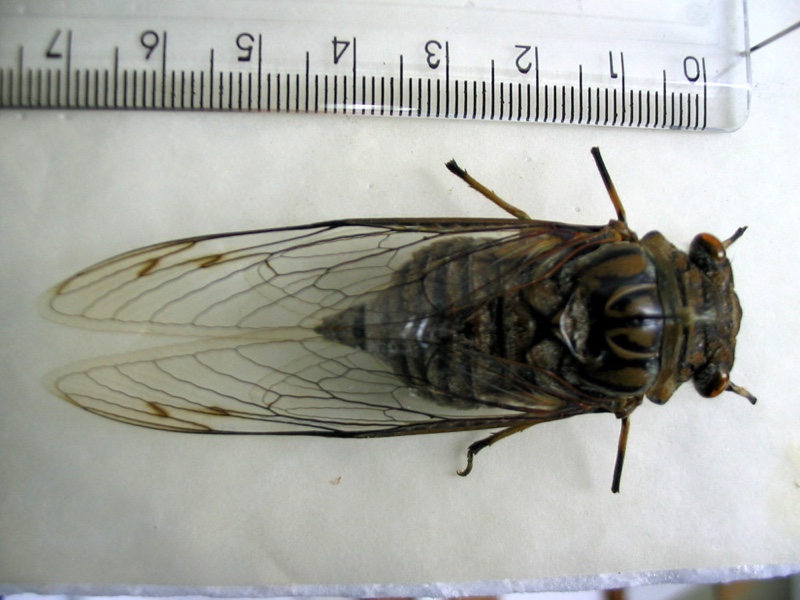
Quesada gigas from Brazil, Photo by Leonardo Milhomem. 2005.

Male Neotibicen tibicen tibicen molting. Other names for this cicada include: Morning Cicada, Swamp Cicada and formerly Tibicen chloromera or chloromerus.
Click each image for larger images:
Joe Green’s Neocicada hieroglyphica photos from 2007, Florida, part 2:
Joe Green’s Neocicada hieroglyphica photos from 2007, Florida, part 1:
Okanagana rimosa exuvia (skins, shells) photos by Elias Bonaros. From 2010, I believe.
Note the dark lines on the abdomen — that’s an easy way to distinguish Okanagana exuvia from other types of cicadas.
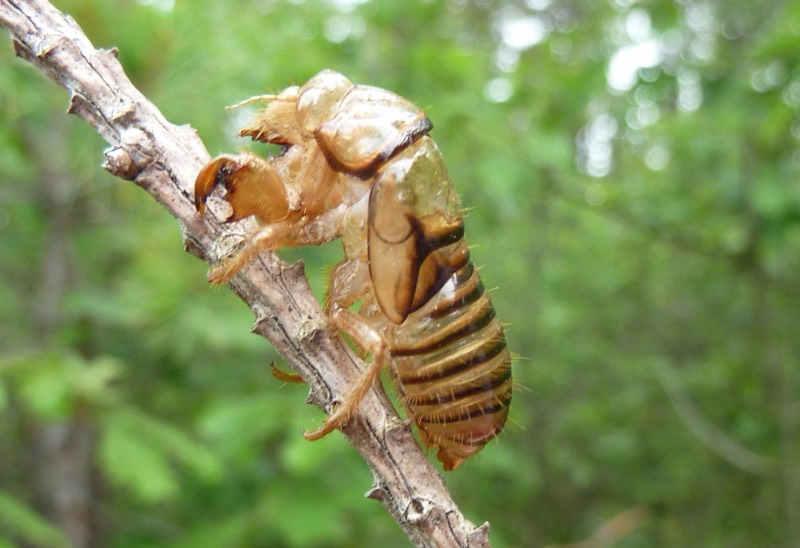
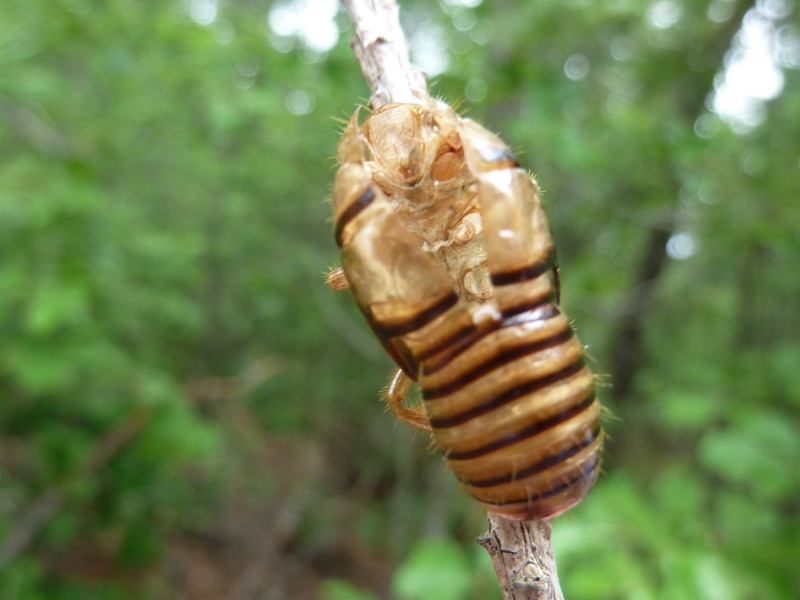
Orange Drummer (Thopha colorata) photos by Jodi from 2007. Australia.
Text for the photos from back in 2007: “Thanks to Jodi for allowing us to post some of her Orange Drummer (Thopha colorata) photos. Two today, two tomorrow! Apparently they’re hatching in droves in Central Australia.”
A molting Orange Drummer (Thopha colorata):
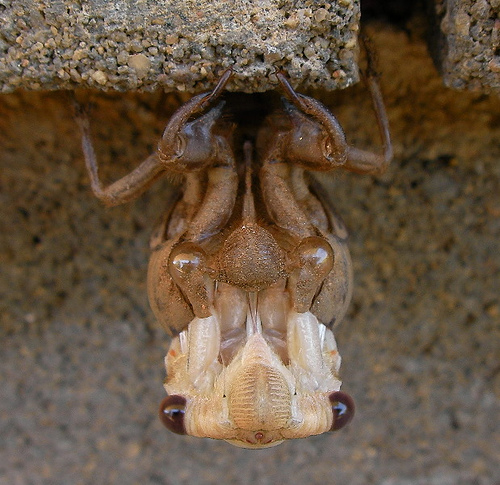
Orange Drummer (Thopha colorata):
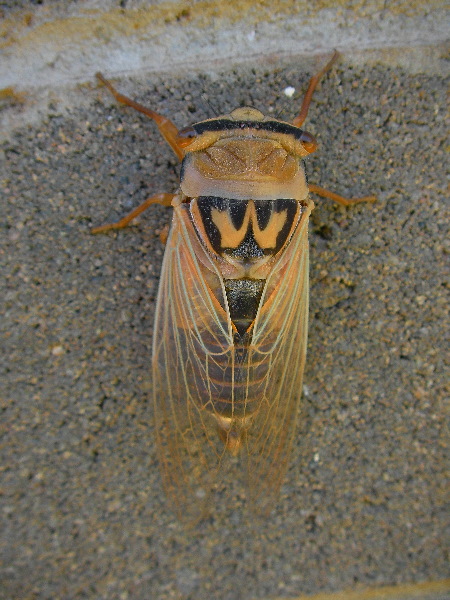
Teneral, recently molted Orange Drummer (Thopha colorata):
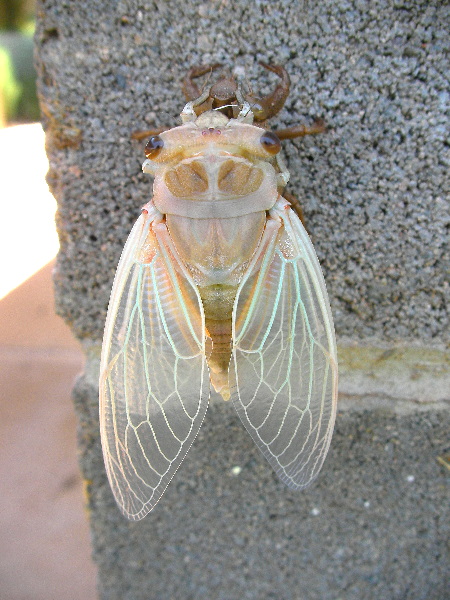
Teneral, recently molted Orange Drummer (Thopha colorata):
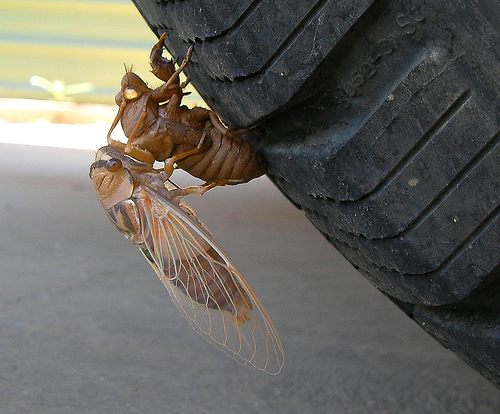
My Neotibicen photos from 2004.
As I reupload all the images on my website, even the horrible low-rez images will be reuploaded. Why? It’s my website, and I like them.
This photo isn’t so bad. It’s Neotibicen exuvia (skins, shells) surrounding a coin:
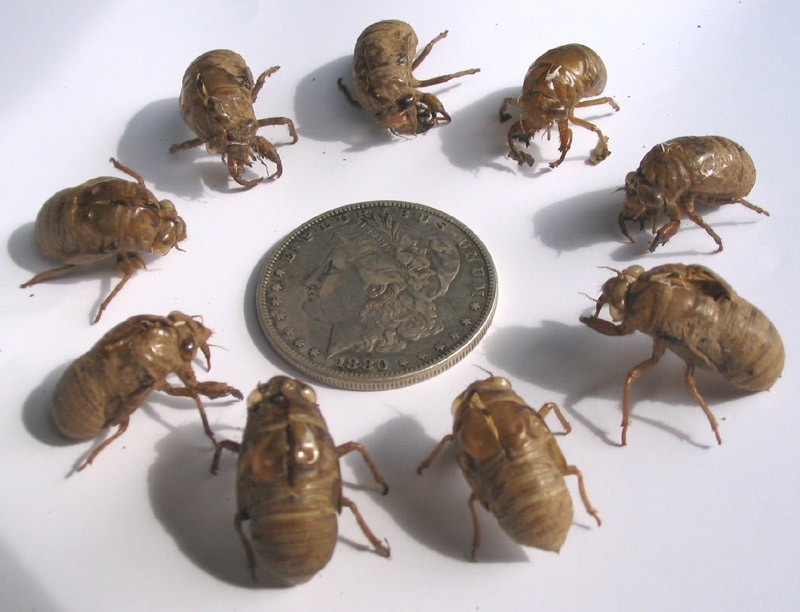
This photo is blurry, but there’s a Neotibicen tibicen (formerly Tibicen chloromera) in the shot.
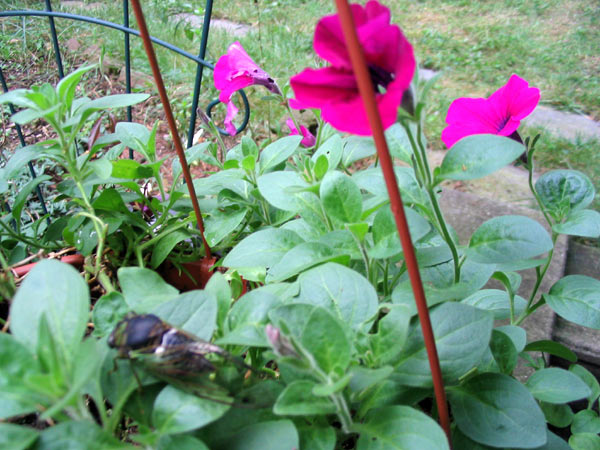
Another blurry photo. This shows a Neotibicen tibicen with wings damaged during the molting process.
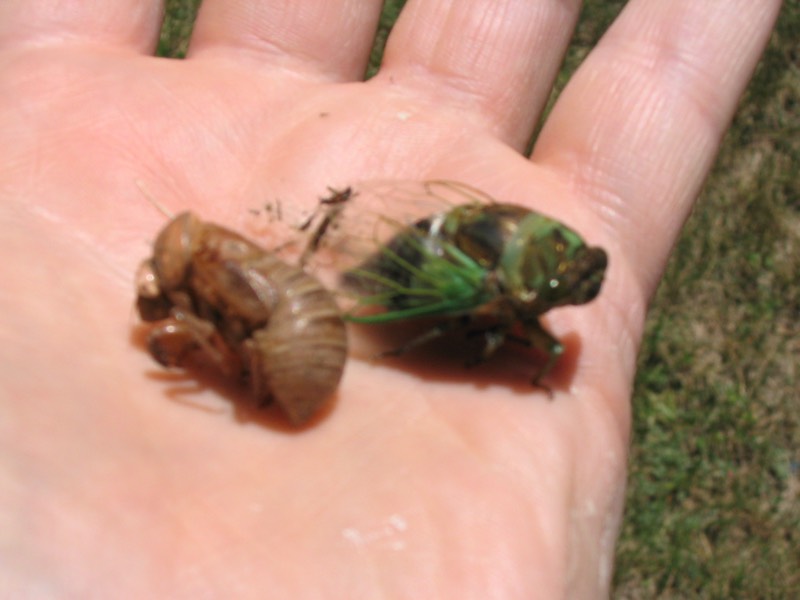
Adult female cicada, Genus Dundubia, showing Tympanal cover. Photo and text by Santisuk Vibul.
Adult female cicadas have perceptive organ ie. Tympana or Ear drums which are mirror-like membranes. The tympana of adult female cicadas are much more smaller than that of the males because they are less developed. The tympana of the female cicadas (shown on the above photo) function as a perceptive organ to percept the calls of the male cicadas from the distance and also function as a shield to protect their tympana like the opercula of the male cicadas.
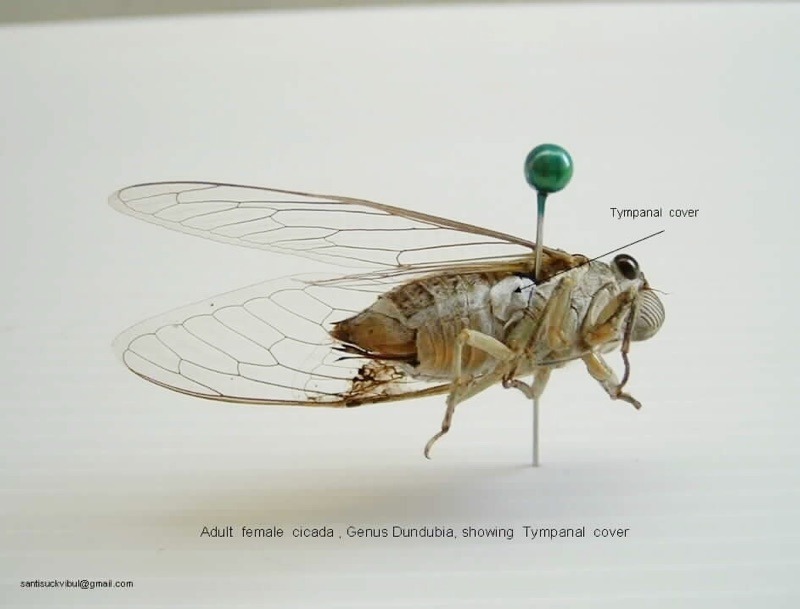
Squashed Megatibicen auletes. Not sure who stepped on it. It’s an interesting look at its anatomy.
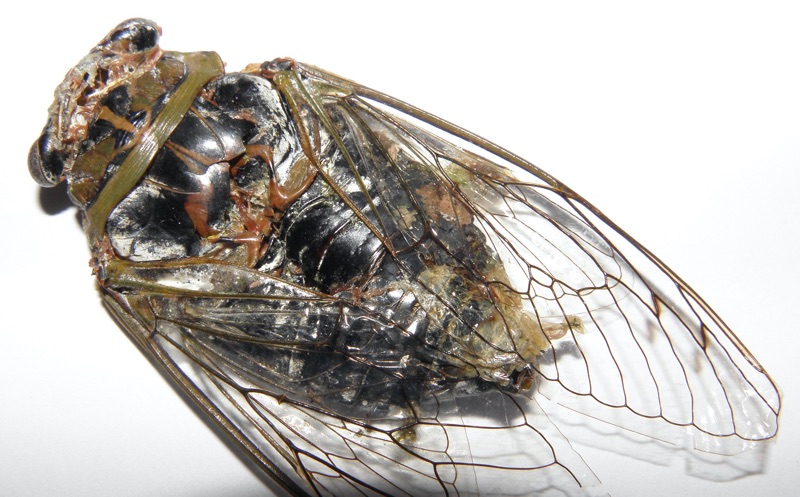
* Note as of 2023 the name of this cicada has changed to Megatibicen grossus. You can also call it a Northern Dusk-Signing Cicada.
Megatibicen auletes found in Winston-Salem, NC by Erin Dickinson. The year was 2011. The cicada’s name was Mortimer. No kidding.
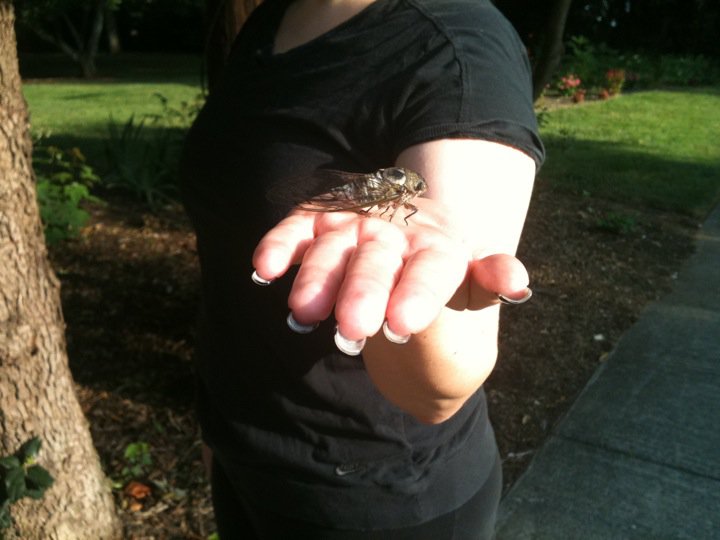
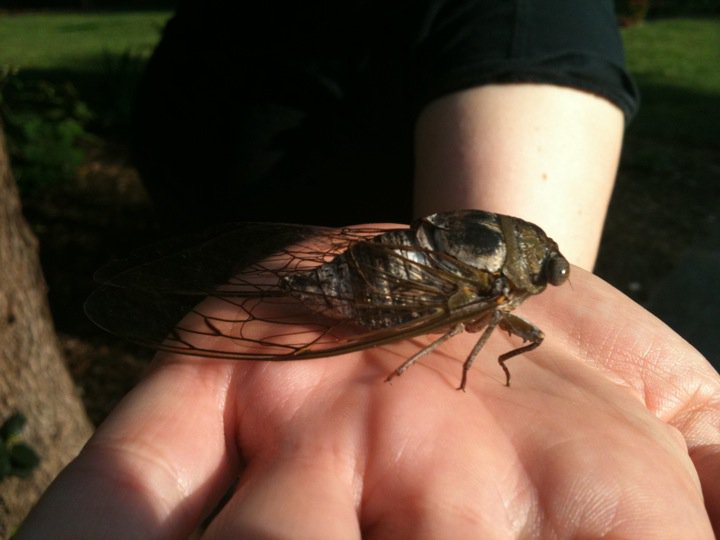
* Note as of 2023 the name of this cicada has changed to Megatibicen grossus. You can also call it a Northern Dusk-Signing Cicada.